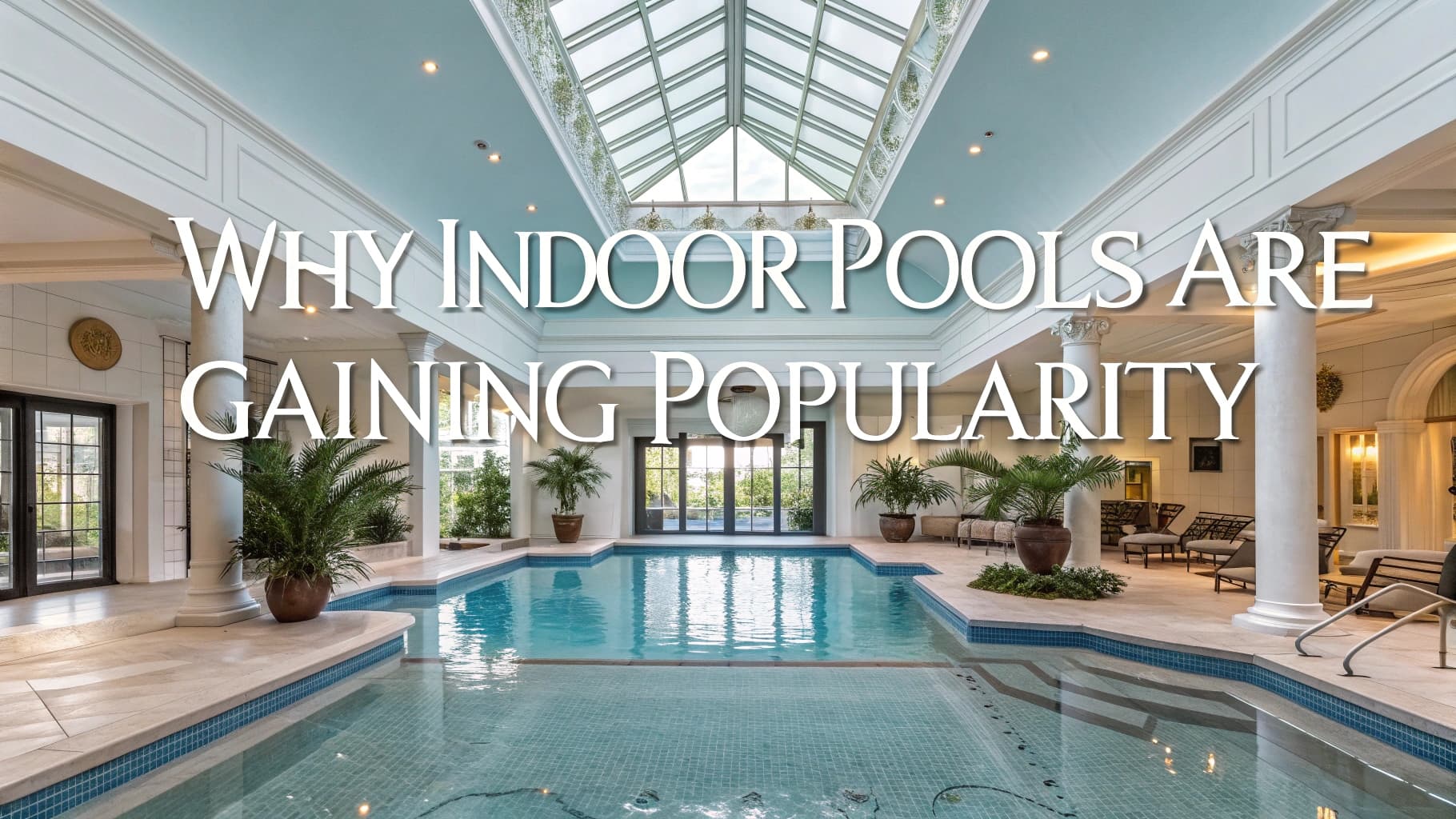The allure of swimming is not confined to the warm embrace of summer; rather, it can be a year-round activity that offers both enjoyment and utility. Indoor swimming pools provide a unique opportunity for individuals and families to engage in aquatic activities regardless of the season. This convenience is particularly appealing in regions where winter temperatures can plunge, making outdoor swimming impractical or even impossible.
With an indoor pool, the joy of swimming is just a few steps away, allowing for spontaneous swims at any time of day or night. Moreover, the convenience of year-round swimming extends beyond mere accessibility. It allows for the integration of swimming into daily routines, whether for exercise, relaxation, or social gatherings.
Families can enjoy quality time together in the water, while fitness enthusiasts can maintain their training regimens without interruption. The ability to swim indoors also means that individuals can avoid the crowds often found at public pools during peak seasons, providing a more serene and personal experience. This level of convenience transforms swimming from a seasonal pastime into a lifestyle choice that can be enjoyed throughout the year.
Health Benefits of Indoor Swimming
Low-Impact WorkoutRecovery and Mental Health Benefits
This is particularly beneficial for those recovering from injuries or managing chronic conditions such as arthritis. The buoyancy of water supports the body, allowing for a full range of motion while minimizing the risk of injury. In addition to physical benefits, swimming has profound mental health advantages. The rhythmic nature of swimming can induce a meditative state, helping to reduce stress and anxiety levels.
Enhanced Experience and Overall Well-being
Regular swimming sessions have been linked to improved mood and cognitive function, as the release of endorphins during exercise fosters a sense of well-being. Furthermore, indoor pools can be equipped with features such as heating and lighting that enhance the overall experience, creating a tranquil environment conducive to relaxation and mental rejuvenation. This combination of physical and mental health benefits makes indoor swimming an invaluable asset for anyone looking to improve their overall quality of life.
Safety and Security
Safety is a paramount concern when it comes to swimming, and indoor pools offer distinct advantages in this regard. Unlike outdoor pools, which are exposed to various environmental factors such as weather changes and wildlife, indoor pools provide a controlled environment that significantly reduces risks associated with swimming. The absence of natural elements means that there are fewer distractions and hazards, allowing for a safer swimming experience.
Additionally, indoor pools can be equipped with advanced safety features such as automatic covers, alarms, and surveillance systems that further enhance security. Moreover, having an indoor pool allows for better supervision of swimmers, particularly children. Parents can easily monitor their kids while they swim without the worry of external distractions or dangers that come with outdoor settings.
This controlled environment fosters a sense of security for families, encouraging children to develop their swimming skills in a safe space. Furthermore, many indoor pools are designed with safety in mind, featuring non-slip surfaces and shallow areas for beginners. This focus on safety not only protects swimmers but also instills confidence in their abilities, promoting a lifelong love for swimming.
Customization and Design Options
One of the most exciting aspects of owning an indoor pool is the opportunity for customization and design. Homeowners can tailor their pools to reflect personal tastes and preferences, creating a unique aquatic oasis that complements their living space. From choosing the shape and size of the pool to selecting materials and finishes, the design possibilities are virtually limitless.
For instance, some may opt for a sleek modern aesthetic with clean lines and minimalist features, while others might prefer a more traditional look with ornate tiles and natural stone accents. Beyond aesthetics, customization extends to functionality as well. Homeowners can incorporate features such as waterfalls, lighting systems, and heating options to enhance the swimming experience.
For those interested in fitness, adding swim jets or resistance systems can transform a standard pool into a space for serious training. Additionally, integrating smart technology allows for automated temperature control and lighting adjustments, making it easier than ever to create the perfect atmosphere for any occasion. This level of personalization not only enhances the enjoyment of the pool but also ensures that it meets the specific needs and desires of its users.
Increased Property Value
Investing in an indoor pool can significantly increase property value, making it an attractive option for homeowners looking to enhance their real estate investment. In many markets, homes with indoor pools are seen as luxurious amenities that set properties apart from others on the market. Potential buyers often view an indoor pool as a desirable feature that adds both functionality and aesthetic appeal to a home.
This perception can lead to higher resale values and quicker sales when it comes time to move. Furthermore, the appeal of an indoor pool extends beyond mere aesthetics; it represents a lifestyle choice that many buyers find attractive. The ability to swim year-round without the constraints of weather conditions is a significant selling point that resonates with families and individuals alike.
As more people prioritize wellness and leisure activities in their homes, having an indoor pool becomes not just an enhancement but a necessity for some buyers. This trend underscores the potential return on investment associated with installing an indoor pool, making it a wise financial decision for homeowners.
Accessibility for All Ages and Abilities
Accessible Design Elements
Many indoor pools are designed with features that cater to diverse needs, such as ramps for wheelchair access or shallow areas specifically designed for beginners. These thoughtful design elements ensure that everyone has the opportunity to experience the joys of swimming regardless of their physical capabilities. Additionally, indoor pools can serve as venues for therapeutic programs aimed at individuals with special needs or rehabilitation requirements.
Promoting Social Interaction
By fostering an inclusive environment, indoor pools promote social interaction and community engagement among diverse groups.
Year-Round Enjoyment
Indoor pools provide a consistent environment where everyone can enjoy swimming year-round, without the limitations of weather or seasonal closures.
Weather-Proof Entertainment
The unpredictability of weather can often put a damper on outdoor activities; however, indoor pools provide a reliable solution for year-round entertainment. Whether it’s a scorching summer day or a chilly winter evening, having access to an indoor pool means that fun in the water is always just around the corner. Families can host pool parties regardless of external conditions, creating memorable experiences without worrying about rain or extreme temperatures.
Moreover, indoor pools can be transformed into multifunctional spaces that accommodate various activities beyond swimming. They can serve as venues for exercise classes such as aqua aerobics or yoga sessions that take advantage of the calming effects of water. Additionally, they can be equipped with entertainment systems for movie nights or social gatherings, making them versatile spaces that cater to different interests and age groups.
This adaptability ensures that indoor pools remain relevant and enjoyable throughout the year.
Environmental Considerations
As awareness of environmental issues continues to grow, many homeowners are seeking ways to make their indoor pools more eco-friendly. Modern advancements in technology have made it possible to create sustainable swimming environments that minimize energy consumption and reduce water waste. For instance, energy-efficient heating systems and solar panels can significantly lower operational costs while decreasing the carbon footprint associated with maintaining an indoor pool.
Water conservation is another critical aspect of environmentally friendly pool management. Innovative filtration systems can reduce water usage by recycling and purifying water more effectively than traditional methods. Additionally, incorporating natural elements such as plants or green roofs around the pool area can enhance air quality while providing aesthetic benefits.
By prioritizing sustainability in pool design and maintenance, homeowners not only contribute positively to the environment but also create healthier spaces for themselves and future generations to enjoy.
FAQs
What are the benefits of having an indoor pool?
Indoor pools offer year-round swimming opportunities, protection from outdoor elements, privacy, and convenience.
What are the maintenance requirements for indoor pools?
Indoor pools require regular cleaning, water treatment, and maintenance of the surrounding area to prevent mold and mildew.
Are indoor pools expensive to build and maintain?
Building an indoor pool can be expensive due to construction costs and the need for proper ventilation and dehumidification. Maintenance costs can also be higher due to the need for climate control and water treatment.
What are the design considerations for indoor pools?
Design considerations for indoor pools include ventilation, dehumidification, lighting, and the use of materials that can withstand the indoor environment.
Are indoor pools suitable for all climates?
Indoor pools are suitable for all climates as they provide a controlled environment for swimming regardless of the outdoor weather conditions.
What are the safety considerations for indoor pools?
Safety considerations for indoor pools include proper fencing, secure pool covers, and adherence to building codes and regulations for indoor swimming facilities.

